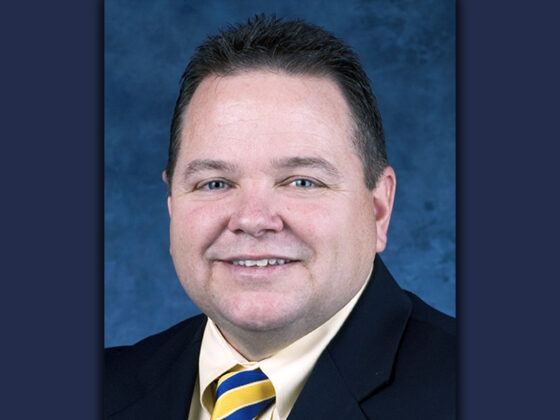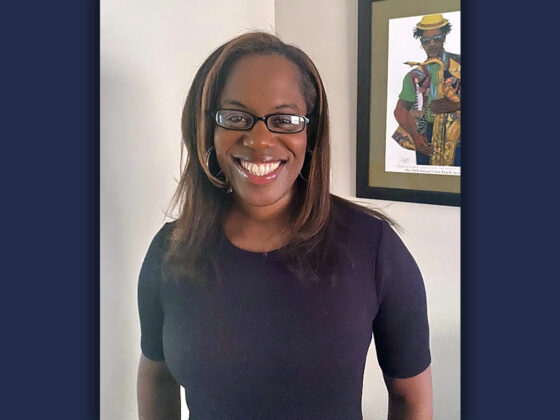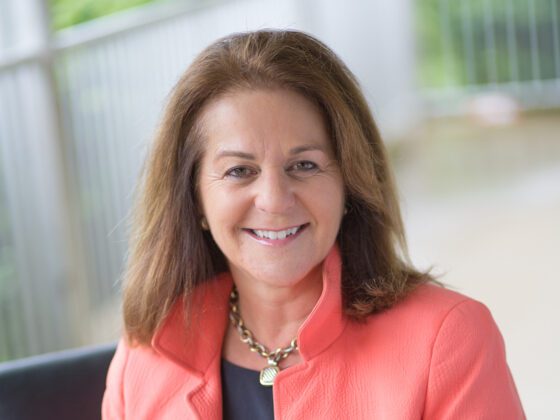Lauren Vaughan, President and CEO of Samaritan Inns and a Washington Business Journal’s Women Who Mean Business 2023 Honoree, will join Darden’s The Executive Program (TEP) cohort this October. Vaughan is the recipient of Darden’s inaugural Women in Leadership TEP Scholarship. From leading at Washington, D.C.’s oldest domestic violence shelter to serving as the Secretary of the District of Columbia to her current role at Samaritan Inns, where they help adults and families struggling with addiction, Vaughan has a big heart for service. Now as Samaritan Inns faces new challenges, changes and a shifting business model, Vaughan is excited to take the next step in her professional development journey through TEP, so they can continue their good work in the community.
Can you tell us more about your career journey in different roles over the years?
I moved to Washington, D.C. in 1997 to attend graduate school at The George Washington University. When I first arrived here, I was learning the lay of the land and I reached out to a mentor looking for philanthropic opportunities. I was particularly interested in women, women’s issues and children’s issues, and he introduced me to My Sister’s Place (MSP), DC’s oldest domestic violence shelter. I went to MSP to volunteer, but the executive director thought I would be a better fit on their Board of Directors. I served on the Board for about nine years and MSP went through an unexpected and challenging transition in leadership when the executive director left. I stepped in as acting executive director and quickly realized I could be a change agent in a way that I never experienced being on the Board, so I applied for the job and ended up serving as executive director at MSP for about six years.
Then, Muriel Bowser, who was a council member in DC at the time, threw her hat in the ring to become Mayor of DC. I had followed her career and always been supportive of her when she was in city government. I knew that I wanted to work for her, and I interviewed for the Secretary of the District of Columbia, which is equivalent to the Secretary of State, and received the job. It was probably the biggest honor of my life to serve Mayor Bowser and the city in that way.
However, I missed the on-the-ground, up close and personal direct service that I had come to love at MSP. After my tenure with the Mayor, I returned to the nonprofit world and worked at MentorPrize for about seven months, but it was during the pandemic and they ceased operations in the summer of 2020. This led me to my current role of President and CEO of Samaritan Inns.
[The Women in Leadership TEP Scholarship] seemed like an awesome opportunity to continue to uplevel my skills and to become a stronger executive. I’ve been on an intentional path of professional development for some time now, and this opportunity seemed like the next step in that process.
What is the mission of Samaritan Inns and why is it important to you?
Samaritan Inns is an amazing place to work. The kind of work that we do for the people who we serve is very special. We are not just a faith-based organization, but a Christian organization, whose founding principles were based on the Gospel of Luke and the Good Samaritan and giving back to those in need. It’s been almost 40 years since Samaritan Inns opened its doors and we’ve expanded the services that we provide.
We provide structured housing and addiction treatment and recovery services to homeless and at-risk men, women and mothers with children. We have a three-phase continuum that starts with an intensive treatment program that lasts about 28 days. Men and women graduate from that intensive treatment and move into a longer short-term program where they are able to stay from two to four months, depending on their individual needs. We provide structured housing and counseling services, and we are a certified Medicaid provider through the Department of Behavioral Health and nationally accredited by CARF – the Commission on Accreditation of Rehabilitation Facilities. The third phase of our continuum is a long-term recovery program, where we provide affordable housing to men and women who have been in recovery for at least six months and have a stable income. They have a sponsor and are interested in living in a community of like-minded peers.
Having experienced these types of issues in my own childhood, the mission holds a special place for me.
You were named an Honoree for the Washington Business Journal’s Women Who Mean Business Award. How did you get nominated for this recognition?
It was from the community. A friend and business colleague from the nonprofit business community here in DC nominated me and then I was chosen by a selection committee. I didn’t have much to do with the nomination, but I was just pleased as punch when I found out!
Why did you decide to apply for Darden’s Women in Leadership TEP scholarship?
It seemed like an awesome opportunity to continue to uplevel my skills and to become a stronger executive. I’ve been on an intentional path of professional development for some time now, and this opportunity seemed like the next step in that process. I’ve been working with a coach for the last year, which has helped me to round out my skillset and to use my self-talk to my advantage rather than having it serve as my own worst critic.
What are you looking forward to with participating in TEP this year?
I’m looking forward to meeting other executives and learning from them, and upleveling my skills. One of the big benefits of this particular type of cohort is the brain trust that will be available to me from my peers.
Additionally, Samaritan Inns has been dealing with a number of challenges and changes that are out of our control, such as changes in government regulations and requirements. We started out of a church ministry almost 40 years ago and it has grown based on what was available to us in terms of how we were able to structure our program. Those things have changed very recently and our business model was built on an old set of guidelines and principles. Now we are in a different place and trying to figure out how our business model needs to change so that we can continue to serve our mission and the good work that we do.




